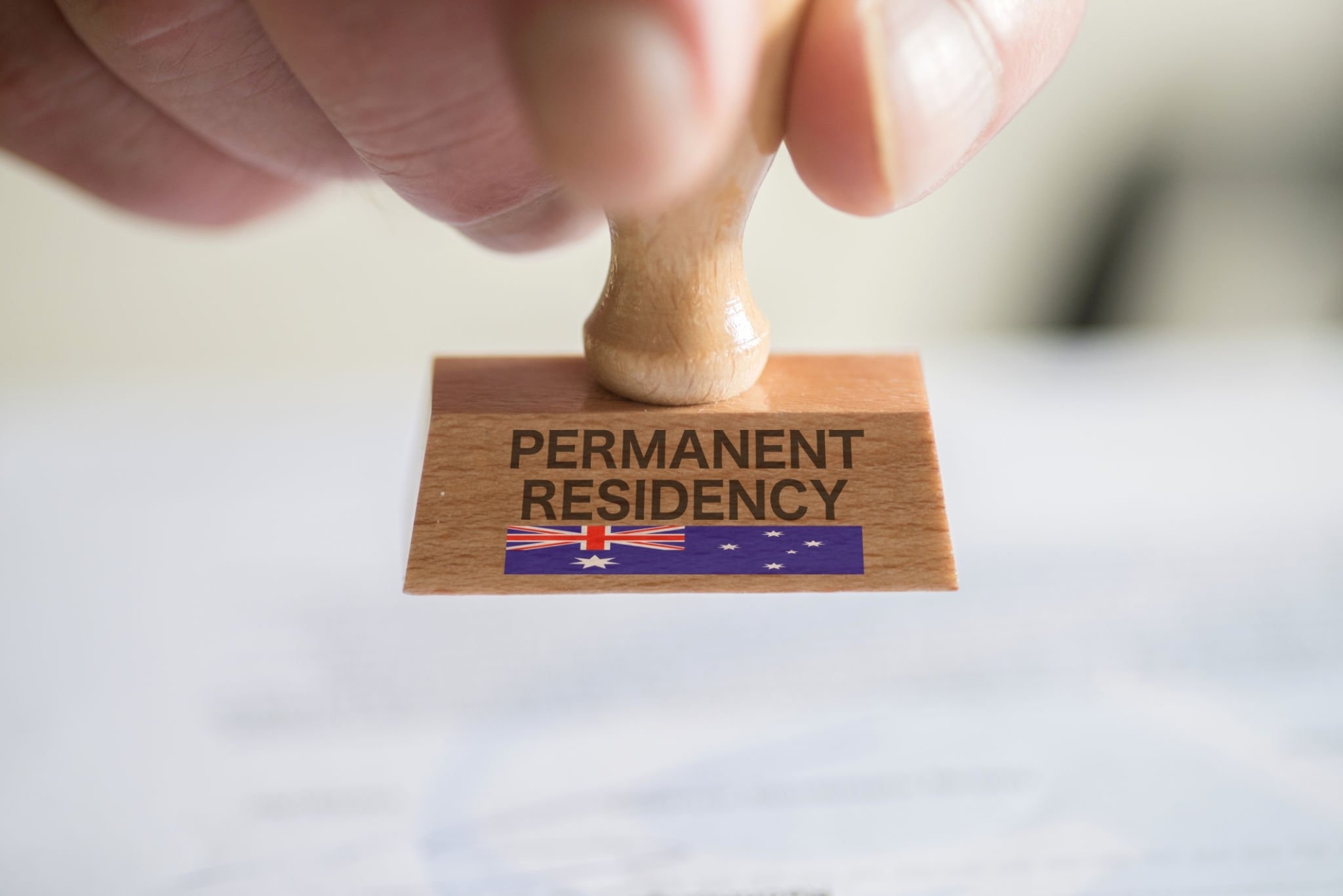Traveling can be stressful. The requirements for customs, prohibited items that can’t bring across borders, and the fine print you didn’t bother to review before beginning your journey could cause delays and disappointment once you arrive at your destination. On top of that, you’re possibly being convicted of a crime. Canada is known for particular strict entry requirements for people with criminal convictions. To enter Canada having a conviction for a felony, the applicant must obtain approval from the government before entering.
Method 1: Being Considered Rehabilitated
1
- Do a self-assessment. Before you depart for your travels, check if you meet the requirements to be considered rehabilitated. If not, then you could be barred from entry to Canada. To be rehabilitated, you must meet the following requirements: you’ve had just one conviction or have only committed one crime.
- At least ten years in the time since you have completed your sentence, at least five years for summary (or minor) infractions
- The crime you committed isn’t considered to be a “serious” offense in Canada (i.e., it is not a “serious” crime, meaning that the maximum sentence for prison, if you were found guilty in Canada, would be no more than ten years)
- The crime was not associated with using a weapon, causing physical harm to an individual, or resulting in significant property damage.
- It is important to note that just because your criminal record was sealed or removed, you could still be restricted from being admitted to Canada. Similar to getting pardoned. The certificate of innocence can be more significant.
2
- Research Canadian law. Canada considers the consequences of a conviction for a crime in the Canada United States and other foreign nations against their laws. While a conviction could be regarded as a misdemeanor only in the United States, what matters is the length of time you’d be serving in the event of a crime done in Canada. There is a wealth of information on Canadian laws and penalties at your local library, calling the Canadian consulate, or searching for violations on the Canadian Legal Institute Information website.
3
- Take all the necessary documents. You have to present proof of your conviction to a Canadian officer at your entry point. If you don’t own these documents, find them here: A passport or birth certificate and identification photos.
- A copy of the court papers for every conviction as well as proof that the sentences were carried out
- A recent criminal record check
- A recent police report from the country you were convicted of and any other country in which you lived for at most six months within the past ten years.
4
- Protect documents that you’re missing. It will take you several months to search for any documents you need that is lacking. You can get a passport at a post office.
- Court documents can be copied. They can obtain it from the courthouse in which you were convicted.
- You can request an arrest record check at the police in your area. Visit the police station in the area where you reside and ask for the check. They will give you the report. If you reside in the United States, you should conduct a criminal background check for every state you’ve resided in for a minimum of 6 consecutive months following the date you turned 18.
- A current police certificate can be obtained by contacting the FBI. Send a letter to “FBI Crime Justice Information Service Division – Summary Request,” 1000 Custer Hollow Road, Clarksburg, WV 26306.
5
- Travel to the Canadian Entry Point Entry. An immigration officer will examine your entry at the entry point. If you’re denied entry to the visa, you won’t be allowed entry into Canada. There is no assurance that you are deemed to be in good standing and allowed entry into Canada regardless of how many years have passed after serving your sentence. If you don’t wish to risk being denied entry and you want to avoid being turned away, you must apply for an individual rehabilitation at least six months before your scheduled travel.
- As a minimum, if you intend to cross the border or travel to Canada, you must be able to get a legal statement by an attorney that states your convictions in the criminal justice system should qualify you as “deemed as rehabilitated.” Even if you possess this certificate, it is not a guarantee that you will be accepted.
Method 2: Applying to Individual Rehabilitation;
1
- You must meet the standards. Rehabilitation is available only if five years have passed since the expiration of the sentence. Rehabilitation by an individual may be the best option for those who have a crime that carries an incarceration sentence of 10 years or more in Canada. Rehabilitation is not a possibility at the point of entry unless your sentence is not more than ten years.
- If you have two or more summary convictions, you can apply within five years, provided you did not have any convictions.
2
- Complete the Application. The Application It is required that you provide an overview of your conviction, describe the reasons for it and the circumstances that led to the conviction, and give a reason for how you feel you’ve been healed. If you have a legal representative for assistance with the form, you must complete the form stating the name of your representative. The form is in your package.
3
- Attach documents. It is necessary to fill out an application checklist and add them to the application form: Copy the pages of your passport that show your name, birth date, and the country in which you were born.
- Copies of court rulings that show the crime and the section of the law that you were charged with, your verdict, and the sentence.
- Text of statutes that you were convicted of under (contact the local police)
- A criminal clearance is required from any country (including Canada) where you have resided for six months consecutively over the past ten years.
- If you’re, you are from within the United States, a criminal clearance from each state where you’ve lived for a minimum of 6 consecutive months following the age of 18 and an FBI clearance. FBI
- Documentation on the sentence parole or pardon. These documents demonstrated the date when the sentence was completed, the judges’ comments, probation/parole reports, and letters of recommendation.
- If you’re a juvenile offender, A letter stating the country you live in has particular policies specifically for minor offenders. It would help if you got this from the court. You were found guilty.
- Be honest. If you lie about your Application and discover conflicting data, you may not be granted entry.
4
Send a request. You should apply early. Expect to wait around one year, but decisions have been made in less than six months.
5
- Make the payment. If you want to apply for Rehabilitation approval, Canada can impose an application fee ranging from $200 to more than $1000. The amount you are required to be charged is contingent on the severity of your conviction. Send at the minimum of $200. If you need more, the amount will be invoiced.
- Don’t send cash. If you are paying by credit card, you must fill out an authorization form. It is included in your application packet.
6
- Wait for your result. Following receipt of the Application, An immigration officer will look it over. The reviewer will make the first recommendations and send the request to an authority, who will decide whether or not to approve requests for rehabilitation. For lesser serious crimes, The manager in charge of local offices typically is the one who can decide whether or not to approve.
- A Minister for Citizenship and Immigration decides to prosecute more serious crimes.
- The most important factors to consider are the number of offenses you have committed and the seriousness and nature of each crime, and your behavior after committing the crime.
- In addition, the officer will also look at your explanation of the offense and the reasons you’re unlikely to commit a repeat offense, your current circumstances, the reasons you have been rehabilitated, and any assistance you get from your community.
Method 3: Obtaining an Order Suspension
1
- Request your record suspension if you have committed an offense in Canada. If you’ve been found guilty in Canada and are convicted, you need to seek an appeal to the Parole Board of Canada before you can return to Canada. You can request a record Suspension Application Handbook by writing “Parole Board of Canada Clemency and Record Suspension Division, at 410 Laurier Avenue West, Ottawa, Ontario K1A 0R1” or go to the site.
- If you’ve been convicted of a crime inside Canada and outside of country, you should be declared rehabilitated and get a record suspension. Both are mandatory.
2
Finish Your sentence. You must have completed all probation, jail time, and prison and paid all fees.
3
- Complete the waiting time. After you’ve served a sentence, you must rest between 5 to 10 years based on the crime. In general, more severe offenses need ten years. A summary offense usually requires just 5. Call the Parole Board of Canada for concerns.
4
The application fees are to be paid. It costs $631 to process your Application, with additional fees for additional requirements, like taking fingerprints and securing police records.
5
- Take a photocopy of the suspension on your record. After you’ve been given an order to suspend your record, You must carry an official copy of the suspension on hand. Also, send a copy of the document to the Canadian Visa office.


